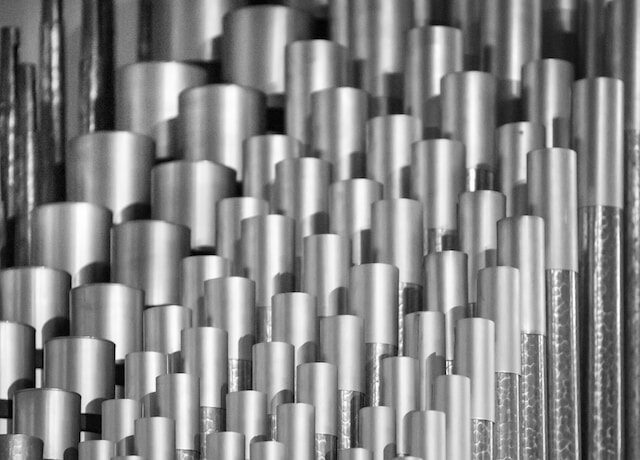An Overview of Aluminium Pipes for Automotive Use
There’s nothing like the rush of firing up the engines and taking to the open road for many car aficionados. Because of their ability to accelerate quickly and handle smoothly, cars have become an essential element of our lives. However, have you ever pondered how these amazing four-wheeled vehicles are made? Automobile aluminium pipes are one important part that is sometimes overlooked. These sturdy yet lightweight pipes significantly improve vehicle performance and efficiency. We will explore the many advantages of using aluminium pipes in cars in this comprehensive guide, from their remarkable longevity to their beneficial effect on fuel efficiency. So fasten your seatbelts and get ready for a thrilling journey into the world of aluminium automotive pipes!

Benefits of Aluminium Pipe Installation in Cars
For good reason, aluminium pipe is becoming a common option in the automobile sector. The advantages of these modern, lightweight pipes over more conventional materials like steel are considerable. Let’s examine a few of the main advantages of using aluminium pipes in cars.
It is well known that aluminium pipes have an outstanding strength-to-weight ratio. Because aluminium pipes are substantially lighter than steel pipes, cars using aluminium piping can get better fuel economy. Additionally, the lighter weight improves handling and overall performance when driving.
Aluminium pipes are not only very lightweight but also quite durable. They are perfect for usage in severe settings or inclement weather because of their exceptional corrosion resistant qualities. Because of its resilience, the piping system is guaranteed to last a long time and to retain its structural integrity.
The better heat dissipation properties of aluminium pipes provide an additional benefit. Because of its superior thermal conductivity, aluminium effectively dissipates heat from vital parts like engines and exhaust systems. This lessens the chance of critical parts being damaged and helps prevent overheating.
Aluminium is also a recyclable material, which makes it a green option for automotive applications. During the production process and over the vehicle’s lifetime, manufacturers can help cut carbon emissions by choosing to use aluminium pipework in their vehicles.
Aluminium pipes have many benefits when used in cars. They are strong and lightweight, increase fuel economy, efficiently dissipate heat, and contribute to environmental sustainability through recycling programmes. We can anticipate many more creative uses of this amazing material in the automotive sector as technology develops further!
The two main characteristics of automotive aluminium pipes are lightweight and durable
Two important characteristics that manufacturers constantly aim for in vehicle components are lightweight and durability. And this is the real advantage of aluminium pipes for cars. Because of their outstanding strength-to-weight ratio, these pipes are a great option for a variety of automotive applications.
The lightweight design of automotive aluminium pipes is one of their main advantages. Aluminium pipes are significantly lighter than steel or other conventional materials without sacrificing strength or functionality. This less weight not only increases fuel economy but also improves the overall handling and manoeuvrability of the vehicle.
Automotive aluminium pipes are not only very lightweight but also quite robust. They can endure severe weather conditions without rusting or deteriorating over time because of their exceptional corrosion resistance qualities. These pipes will last longer thanks to their resilience, which lowers the need for regular maintenance and replacements.
Furthermore, these pipes can handle high pressure conditions and huge weights due to the great strength of aluminium. Automotive aluminium pipes offer dependable performance without any failure risk, whether they are transporting gases or fluids under high pressure in the exhaust system or engine.
Furthermore, these pipes can be readily customised into a variety of forms and sizes in accordance with particular design needs because of their malleability and ease of construction. Because of its adaptability, manufacturers are able to design intricate pipe systems that smoothly integrate into various automotive components.
Nowadays, the industry prefers automotive aluminium pipes because of their remarkable endurance and lightweight design. It’s understandable why an increasing number of automakers are implementing this cutting-edge technique in the production of their vehicles given its capacity to increase fuel efficiency while preserving structural integrity under difficult circumstances.
Enhanced Fuel Economy Using Aluminium Pipes
Fuel efficiency in automobiles may be greatly increased by manufacturers by using aluminium pipes. This is because aluminium is lightweight, which lowers the vehicle’s overall weight and improves performance.
Aluminium pipes are significantly lighter than conventional steel pipes. Because the car needs less energy to move, the weight decrease results in better fuel economy. Additionally, by lowering airflow constraints and enhancing heat dissipation, the usage of aluminium pipes can help optimise engine performance.

Reduced friction in the engine system is another benefit of automotive aluminium pipes’ robustness and light weight. Reduced friction during operation results in less energy lost, which raises fuel economy.
Aluminium also aids in heat dissipation more efficiently than other materials like steel or plastic due to its better thermal conductivity. This further improves fuel efficiency since there is less need for cooling devices like fans or radiators.
Using aluminium pipes has advantages for the environment in addition to improving fuel efficiency. Reduced greenhouse gas emissions and a smaller carbon footprint are the results of improved fuel efficiency.





